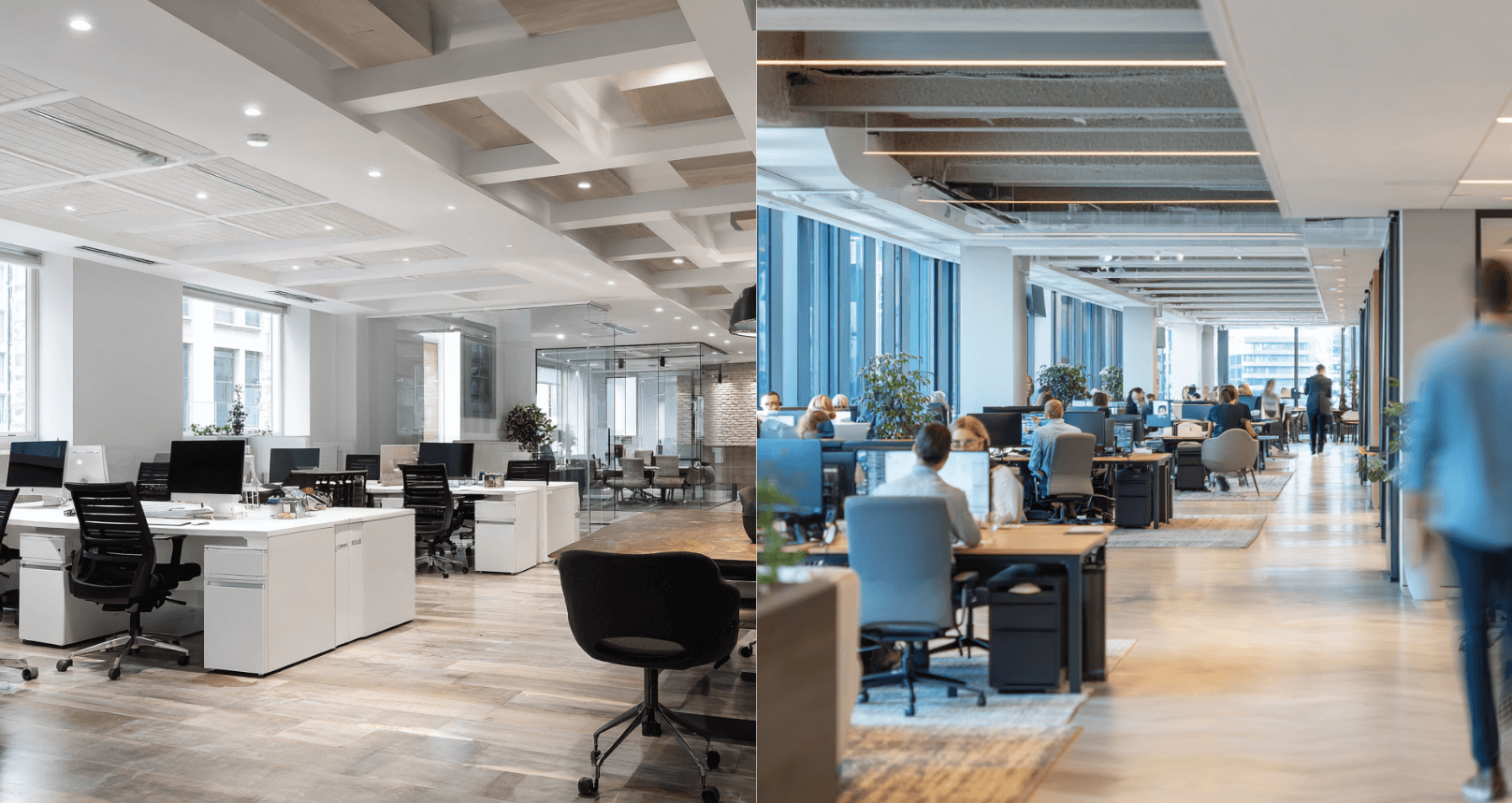How return to office data will shift skylines
An entire city reliably knowing how it was used would unlock a world of new possibilities.

An entire city reliably knowing how it was used would unlock a world of new possibilities. Cities could identify their inefficiencies and redesign themselves to be more efficient, sustainable and… well, just more fun.
Just like we can measure today how people vote with their feet and change workplaces to fit their needs.
How can these same insights reshape our cities?
That's a question Density CEO Andrew Farah explored at SXSW 2023 with workplace leaders from Gensler (Sofia Song) and Cloudflare (Caroline Quick).
Here are a few highlights from their panel discussion.
Data brings pragmatism to design
Historically, we have designed and used buildings based on observation, trends, surveys, and precedent. But relying on anecdotal input and best guesses is no longer adequate.
Buildings account for 39% of global CO2 emissions. It's been reported that 4.4 billion squre feet of U.S. office space was vacant but paid for pre-pandemic.
Businesses can remove the guesswork from their design choices by measuring how people use their space. They can create better, more efficient spaces and, in turn, cities.
"I think people vote with their feet in ways we didn't expect," Farah said. "And that is an extremely exciting thing because that can inform future design in an empirical way instead of an emotional way.”
When people return to the office, cities benefit
A leading argument for why the office is so important is that in-person interactions boost creativity and productivity.
A 2022 Gensler report, for example, reveals that employees in high-performing workplaces prefer to be in the office 72% of the work week to maximize individual productivity and 71% of the week to maximize team productivity.
Meanwhile, Salesforce CEO Marc Benioff, among the earliest and most prominent advocates of remote work following the pandemic, has begun questioning whether less face time among colleagues has hurt business.
“New employees (hired during the pandemic in 2021 & 2022) are especially facing much lower productivity,” he wrote in a Slack message to employees. “Is this a reflection of our office policy? Are we not building tribal knowledge with new employees without an office culture?”
But it isn't just companies that benefit when employees come to the office. Cities are better off, too.
“Think about all those other businesses that support the employees — the dry cleaners, the lunch spots, all those ancillary businesses that rely on that employee foot traffic," Song said. "And on the greater scale, we're talking about tax revenues.”
Forward-thinking companies are using data to uncover why employees come to the office so they know how to design spaces employees will return to. One of our customers used our data to identify if employees preferred one seating arrangement style over another.
Now imagine how this could play out on a city level.
Key Takeaways

DisruptCRE founder shares how corporate real estate is changing
Companies are moving employees from underutilized offices into "space as a service” options with utilization data.
Watch now
Half of offices are empty but you still can’t find a meeting room
Employees waste up to 30 minutes a day looking for a meeting room to meet in workplaces.
Read moreMost recent

Space waste: The industry’s naughty and nice list
Our sensors spilled the beans: What industry is winning, who's wasting and who's hogging your office real estate.
.png)
Improve your occupancy sensor RFP with our best practice guide
Discover essential questions to simplify your occupancy sensor RFP process and confidently choose the right vendor.

Does RTO actually work? A webinar debate with the data
Density’s RTO data sparks debate between a pro-office CEO and a remote-friendly workplace strategist.

A workplace love story: Phone booth meets sensor
Phone booths are booming—and occupancy sensors help companies manage and measure them with ease.
Explore other Density Products
Atlas for Workplace
Insights for the workplace that help you cut costs and deliver better spaces.
Learn more